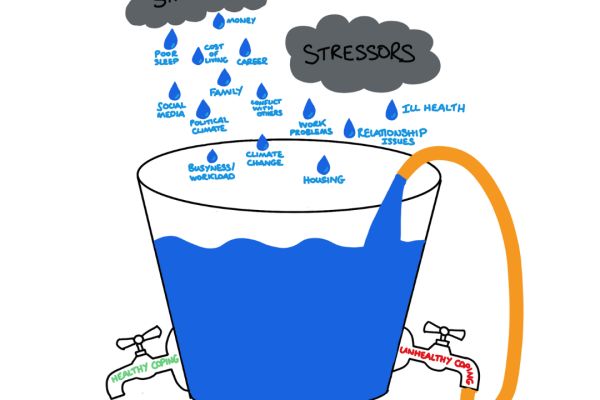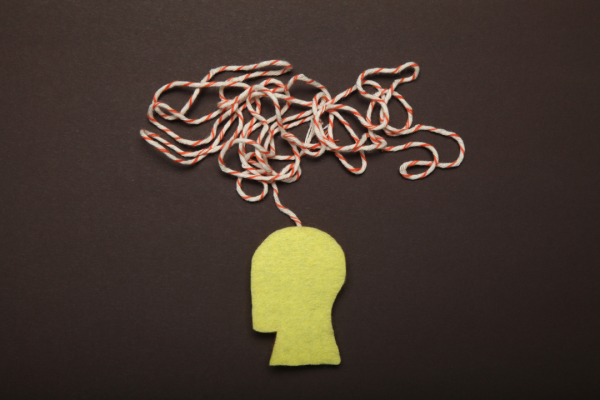As a clinician, I often refer to self care as a huge part of what’s missing in the life of someone who’s busy and stressed. So what is self care? Self care in essence is the mindful taking of time to pay attention to you, not in a narcissistic way, but in a way that ensures that you are being cared for by you.
And I’m often asked, what does that look like, and how do you take care of yourself in order to avoid burnout or compassion fatigue? Quitting your job or taking six months off to decompress is seldom an option for most people. What concerns me is that all too often, I see strong, successful professionals succumb to illness and get really, really sick and only then do they manage to get the much needed break to catch their breath or slow down and change direction. I think there's a better way, and incorporating self care every day helps to serve as an armor to protect the energy that we need in order to survive and thrive. Self care goes a long way in managing stress and living your best life.
Here are 10 ways to exercise self care and take better care of you.
1. Self care means knowing who you are and your limits. Self care means recognizing when you are doing more than you are used to handling and trying to figure out what can be done to slow down.
2. Self care means getting the sleep you need and knowing how to rest. Are you getting enough sleep for you? Do you know how much sleep you require everyday and are you sleeping at least that much? Making a serious effort to make that happen as well as knowing how to rest your body and your mind are essential.
3. Self care means making sure that you're well fed. Does what you eat provide the energy you need to function? Do you take time to eat meals at work and do you take time to have snacks when your body requires intermittent food during the work day? Self care means integrating favorite healthy foods into your everyday eating routines and planning ahead to make sure you have adequate nutrition throughout your day.
4. Self care means finding a way to decompress throughout your day, not just when you leave work. What is it you do to rest your mind during and after a work day? What helps you tune out the noise? Most people tell me they don’t have the luxury of taking breaks during their work day, but trying to integrate mini breaks throughout the day helps refresh your mind and body. For example, try stretching or taking a brief walk even if it's only a few feet away, getting yourself a drink of water, talking to a friend, getting in touch with a loved one even if it's just a text, or purposely looking at photos that have special meaning. The brain needs those pauses.
5. Self care means giving some thought to changing a difficult work situation. We know best what we need and what we can deal with. Is there anything that can be done to make your work somewhat less stressful? Think about whether changes can be made to your work environment. Are you okay with where you sit and do your work? Are you working unsustainable hours and is there some end in sight? It might be a matter of approaching a supervisor with things that you think may make your work more pleasant, such as changing where you sit or changing whether you take an earlier lunch or later start time.
Sometimes supervisors are not even aware of the reality of what the worker experiences in a work day. A frank conversation delineating the things that are most stressful might precipitate the process of improving your working conditions. People see the world through their own lenses and supervisors have their own problems and a sometimes a simple conversation can provide the insight they needed to rethink how things are done.
6. Self care means taking time to get to know you better. Self care means learning to recognize your own temperament and trying to prepare for your personal limits. For example, do you have the trait of "high sensitivity? (Aron 1996) "Highly Sensitives" or "HSP's" are particularly bothered and affected by over-stimulation. Identifying your temperament and your triggers and planning accordingly might help lessen inevitable stress. That might be as simple as grabbing some almonds before a meeting that usually cuts into your lunch hour so you're not ridiculously hungry or rethinking fabulous but uncomfortable shoes.
7. Self care means identifying what you enjoy doing and what's fun for you and make a serious effort to integrate it into your day or, at the very least, your week. Make it a habit to plan something to look forward to everyday and that doesn't have to be complicated. It can be as simple as planning to read a good book at night or planning to have dinner with someone whose company you enjoy.
8. Self care means knowing how to decompress after a day's work. That might mean walking home from work to clear your head, driving in silence or listening to music to help transition from work to home.
9. Self care means feeding your spiritual self. That might take the form of meditating, praying, communing with nature by a walk in a park, observing a sunset or sunrise, attending a religious service, practicing gratitude, reading or listening to something inspirational.
10. And finally, self care means taking time to love yourself and appreciating that there's only one you and you're the expert on that.
References
Aron, E. (1996) The Highly Sensitive Person Three Rivers Press, New York
























